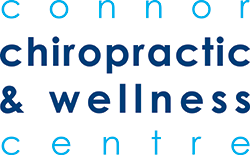Understanding Muscle Cramps
Muscle cramps, those sudden, involuntary contractions of muscles that can strike at the most inconvenient times, are a common and often painful experience. While they’re usually harmless, understanding their underlying causes, effective treatments and proactive prevention strategies can help you keep cramps at bay. In this comprehensive post, we’ll explore the top 10 causes of muscle cramps, what you can do to treat them, and how to prevent cramping in the future.
Some of the main causes of muscle cramps include:
- Dehydration: Dehydration is a leading cause of cramps. When your body lacks proper hydration, your muscles may be more prone to contracting involuntarily. This is why muscle cramps are common during or after strenuous physical activity.
- Electrolyte Imbalance: Electrolytes, such as potassium, calcium, and sodium, play a crucial role in muscle function. An imbalance in these electrolytes can lead to cramps. Low levels of potassium, in particular, are often associated with cramps.
- Overexertion: Engaging in intense physical activity or overexerting your muscles can lead to cramping. This is particularly common in athletes and individuals who push their bodies to the limit.
- Poor Blood Circulation: Insufficient blood flow to muscles can cause muscle cramps, often experienced during periods of inactivity or while sleeping. Conditions like atherosclerosis, which restricts blood flow, can be a contributing factor.
- Muscle Fatigue: When muscles become fatigued, they are more susceptible to cramping. This is especially true for those who engage in repetitive or prolonged movements, such as long-distance running or cycling.
- Medications: Certain medications, such as diuretics, statins, and medications used to treat high blood pressure, can cause muscle cramps as a side effect.
- Medical Conditions: Underlying medical conditions, such as diabetes, nerve disorders, or thyroid disorders, may contribute to muscle cramps. These conditions can affect the nerves and muscles in your body.
- Inadequate Stretching: Insufficient warm ups before activity or stretching after physical activity can increase the risk of muscle cramps. Tight and inflexible muscles are more prone to contracting involuntarily.
- Cold Temperatures: Cold weather can cause muscle cramps, as the cold can lead to muscle stiffness and reduced circulation. This is often experienced by athletes who train in cold conditions.
- Age: As we age, our muscles tend to become less flexible and more prone to cramps. This is due to a natural loss of muscle mass and changes in muscle tissue.
What are some of the top treatment options for muscle cramps?
Stretching and Massage: If you experience a muscle cramp, gently stretch and massage the affected muscle. This can help relax the muscle and alleviate the cramp. Hold the stretch for at least 15-30 seconds to ensure relief.
Heat and Ice: Applying heat to the cramping muscle can help relax it and increase blood flow. Ice, on the other hand, can reduce inflammation and relieve pain. Experiment with both to see which works best for you.
Chiropractic Care: Chiropractic care can be a valuable option for managing and preventing muscle cramps. Chiropractors focus on musculoskeletal health and can help identify some of the causes of muscle cramps. They use spinal adjustments and other techniques to enhance overall muscle and nerve function, which can reduce the likelihood of cramps. Additionally, chiropractors can provide guidance on lifestyle modifications, such as hydration and nutrition, to address the root causes of cramps.
Hydration and Electrolytes: Drinking plenty of water and maintaining proper electrolyte balance are essential for prevent cramping. Sports drinks with electrolytes can help replenish lost minerals during vigorous exercise.
Medication Review: If your muscle cramps are medication-related, consult your healthcare provider. They may adjust your medication or recommend alternative treatments to minimize side effects.
Relaxation Techniques: Stress and anxiety can contribute to cramps. Practicing relaxation techniques such as deep breathing, meditation, or yoga can help reduce tension and the risk of cramps.
What are the top ways to help prevent cramping?
- Stay Hydrated: Make sure to drink enough water throughout the day, especially during physical activity. Dehydration can significantly increase the likelihood of cramps.
- Eat a Balanced Diet: Consume a well-balanced diet rich in foods that provide essential nutrients, including potassium, calcium, and magnesium. These minerals are crucial for muscle function.
- Stretch Regularly: Incorporate stretching into your daily routine, focusing on muscle groups prone to cramping. Pay special attention to the calves, hamstrings, and quadriceps.
- Gradual Warm-Up and Cool-Down: Always warm up before exercise and cool down afterward. Gradual increases and decreases in intensity can help prevent muscle fatigue and cramping.
- Strength Training: Strength training exercises can improve muscle strength and endurance, reducing the risk of muscle fatigue and cramps.
- Wear Appropriate Clothing: Dress appropriately for the weather, especially in cold conditions. Keep your muscles warm and well-insulated to prevent stiffness and cramps.
- Manage Stress: Stress management techniques can help reduce muscle tension, decreasing the likelihood of cramps. Practice relaxation methods as needed.
Muscle cramps can be both painful and disruptive, but understanding their causes and implementing effective treatment and prevention strategies can help you take control of your muscle health. Chiropractic care, with its focus on musculoskeletal well-being, can play a vital role in reducing the occurrence of muscle cramps. By staying hydrated, eating a balanced diet, stretching regularly, and implementing other preventive measures, you can enjoy a life free from the discomfort of muscle cramps and maintain your physical and overall health.


